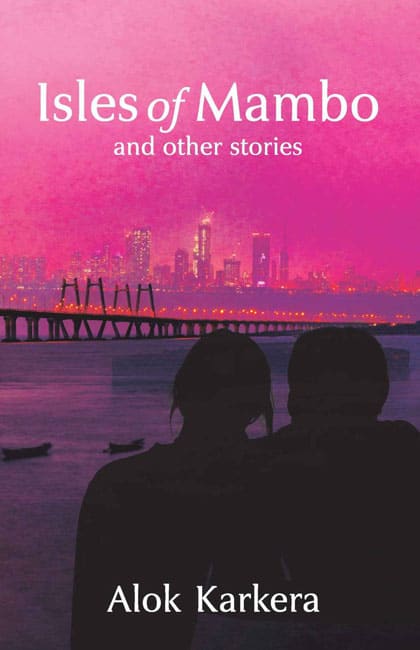PLOT: 4.5/5
CHARACTERS: 4/5
WRITING STYLE: 4.5/5
CLIMAX: 4.5/5
ENTERTAINMENT QUOTIENT: 4.5/5
A keen student of human nature, Alok Karkera’s hobby of many years culminates into Isles of Mambo.
It is a collection of short stories beginning with the story Twelve. Twelve is about the lives of several people living in the city of Mumbai. They all belong to various backgrounds and social classes. What brings them together is the event of a landslide on a rainy day in the Mumbai monsoon.
The story is told from a third person narrator perspective and includes the experiences of a slum dweller, a small boy returning from school, a news reporter on her first reporting task, parents of the small boy, their relatives and Vicky Taneja who is in a Boeing 737 aircraft to Mumbai and is not too fond of the ‘blue city.’
Vicky’s view of the slums down below from the plane juxtaposes with the tragic story of those who are hurt and killed in the landslide. Several lives intertwine as new twists make the plot highly dramatic.
Drama is central to Karkera’s plots. Princess opens up to as a story of a couple who live in a residence overlooking the Arabian sea. With its numerous plot twists, it slowly reveals to be something totally different. It is a story of a broken heart but accomplished career with a really surprising ending. A constant flux of time adds to the intensity of the plot.
The stories don’t follow a chronological order and move back and forth in time. Time is an onlooker into the lives of the characters who go through estrangement of emotional and physical kinds in various difficult situations.
Karkera also uses different locales of Mumbai city to suit his stories. From Saki Naka to Juhu, he includes iconic locations as settings for his stories.
The book cover is also well crafted with a couple looking out to what seems to be the Worli Sea Link. There is also slight use of Marathi but not too much such as in Jambool Dada where the word Dada in Marathi means elder brother.
The stories are intricate and heart-rending. Though simple, the writing style is clearly well adorned with apt phrases and good use of a variety in terms of presentation.
Karkera uses different modes of presenting his stories that have short notes and letters in them. The titles of the stories add to the drama and suspense. They are accurate in measuring intricacy of the narratives and reflect them well.
Above all, Isles of Mambo comes with a social message in each story like a moral that can be taken away from each of them.
While a reader may mistakenly think that the stories begin in a rather predictable fashion, they move into broader dimensions and cannot be easily guessed.
I live by the Arabian Sea brings in some class conflict while The Kill reflects the trickery and the underworld that Mumbai is famous for. Overall, there is a good balance of plot construction, climax and drama.
However, Karkera’s main focus is on characterisation and he aces that. While the stories are built on well-developed characters, it brings about the challenge of having to remember a lot of them throughout the narratives. A single story may have over ten characters that seem to muddle up the plot or overcrowd the written space.
Some other interesting stories include Escape, Schadenfreude and She is not the One for You.
The titular story Isles of Mambo comes towards the very end where it is the name of a company emblazoned on Srinivas Sripurapu’s shirt who is a keen reader of the daily news and is conscious of problems relating to the ecology and terrorism.
It is a mix of futurism and social realism with themes of female escorting for sexual exploitation, prostitution, trafficking, dowry and sex ratio. With a tinge of humour, Karkera provides some interesting suggestive solutions that are worth thinking about.
Can’t wait to read it? Buy your copy of Isles of Mambo using the link below.
